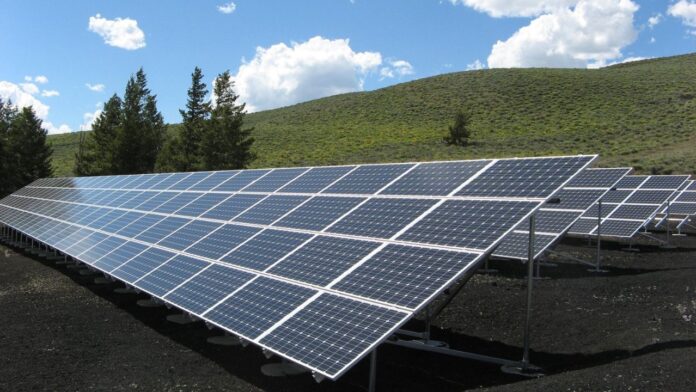Community solar is a way to go solar without rooftop solar panels. Renters and co-op/condo owners can join if they pay their electricity bills. Locally-operated community solar projects slash energy prices, translating into participants’ savings. Unlike green power rates, these savings are reflected in their utility bills.
[PS: You should also check out our post on the 8 Easy Ways to Be More Eco-Friendly & Green At Home.]
No Upfront Costs
Many Americans are locked out of solar energy because they can’t host a system, or have some other factor. Community solar solves that problem by giving everyone equal access to renewable generation’s economic & environmental benefits.
Instead of paying upfront to install a rooftop system, customers who participate in a community solar program pay for the power produced by local projects that feed into their existing utility grid. That power offsets their electricity use, which is then reflected in their utility bills, and they receive credits for participating.
The process is similar to subscribing to a streaming service. Customers enter their zip code to see what community solar options are available in their area, and they can filter by project details, developer information, and estimated yearly savings.
Once they find a good match, they can sign up online or over the phone with their selected provider. And if their circumstances change, they can cancel their subscription without penalties or fees.
Renters should consider community solar a wonderful choice because of its flexibility, and the industry is attempting to simplify the process.
No Maintenance Costs
Unlike rooftop solar, which can require a large upfront investment, maintenance costs, and installation expenses, community solar connects you to local solar farms without the panels on your roof.
Instead, you get clean electricity from your current electric utility through a community solar subscription that gives you credits on your bill based on the energy generated by the project.
Consumers, including renters and co-op/condo owners, purchase a share of an offsite community solar project and receive credits on their utility bills that reduce their energy costs. It enables them to save money while supporting renewables and strengthening the power grid.
In addition, these projects are built in a way that minimizes the amount of energy they produce during peak production times so that consumers won’t see higher-than-normal electricity prices on their bills during those periods.
A recent study found that, on average, community solar subscribers can save between 10-20% on their electricity bills. Community solar is a big part of the Obama administration’s Justice40 climate-related funding commitment. It aims to direct 40 percent of federal funds to historically disadvantaged communities and households that need it most.
To help make community solar more accessible to those in subsidized housing, the White House recently launched a new pilot program that makes it easier for residents of subsidized housing who subscribe to community solar to connect with the programs they participate in.
No Contracts
Only about one in four Americans can install a rooftop solar array at their home or business because they live in shared housing, or need a larger, sunny roof. Community solar addresses these roadblocks and makes the benefits of going green available to more people.
Energy users who cannot put solar panels on their residences or places of business can “subscribe” to a local community-based solar project that produces power for the grid through community solar, also known as solar gardens or shares. Each subscriber pays for a percentage of the project’s solar panels and receives credits on their electric bills corresponding to their claim.
Most community solar projects utilize virtual net metering to credit owners and subscribers for the electricity their systems contribute to the grid. It differs from a residential solar system, which typically uses the investment tax credit for solar panels installed on a homeowner’s property.
They are located on the site of a utility, a government agency, or another entity. There are also on-site community solar options, in which occupants of multifamily buildings like apartments or condos can purchase a portion of a community solar installation on their roof.
Customers participating in these on-site community solar programs sign subscription or power purchase agreements with the project’s developer.
No Long-Term Commitment
Many individuals who wish to switch to solar energy worry about being bound by a lengthy contract. With community solar, you can sign up and save without being obligated to any contract length. You can even switch projects if you change your mind for free, without any penalties or fees.
If you’re considering going solar, enter your zip code to see a list of local projects accepting applications. Click “Project Details” to learn more about each project, including cancellation policies, billing info, environmental impact, and other key factors.
Then, select your preferred project and fill out your subscription information. Once you’ve signed up, you will receive a monthly utility bill with credits based on how much energy your selected solar farm has generated that month.
Community solar helps expand access to clean energy for communities historically unable to afford rooftop solar, such as low-income communities and BIPOC residents. It is especially important because dirty fossil fuel power plants are often built in disadvantaged communities, which are most exposed to the negative health impacts of pollution from those facilities.
By bringing local renewable energy to low-income communities, community solar can help democratize the transition to clean energy for everyone.
Also Read:

